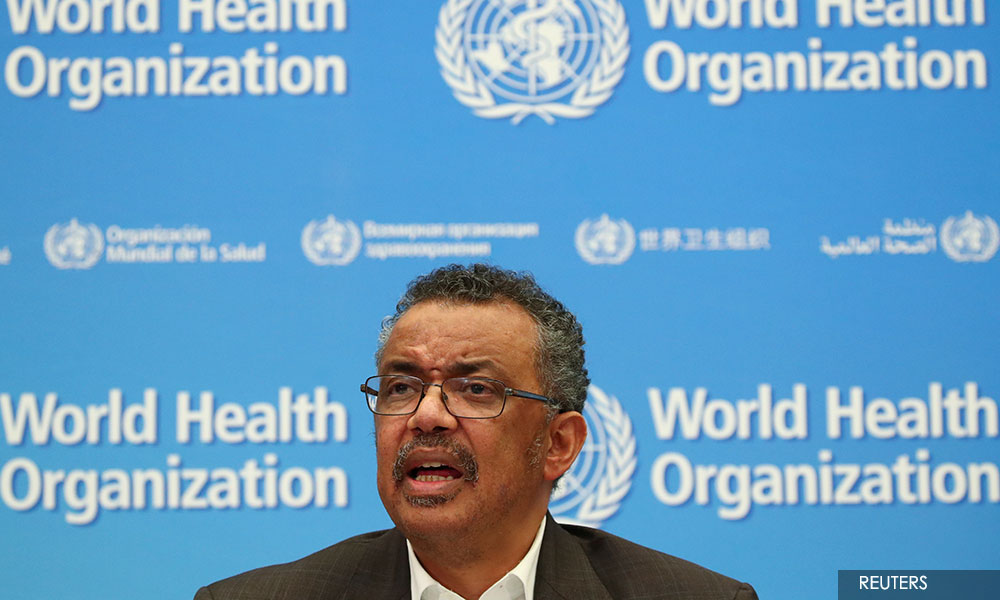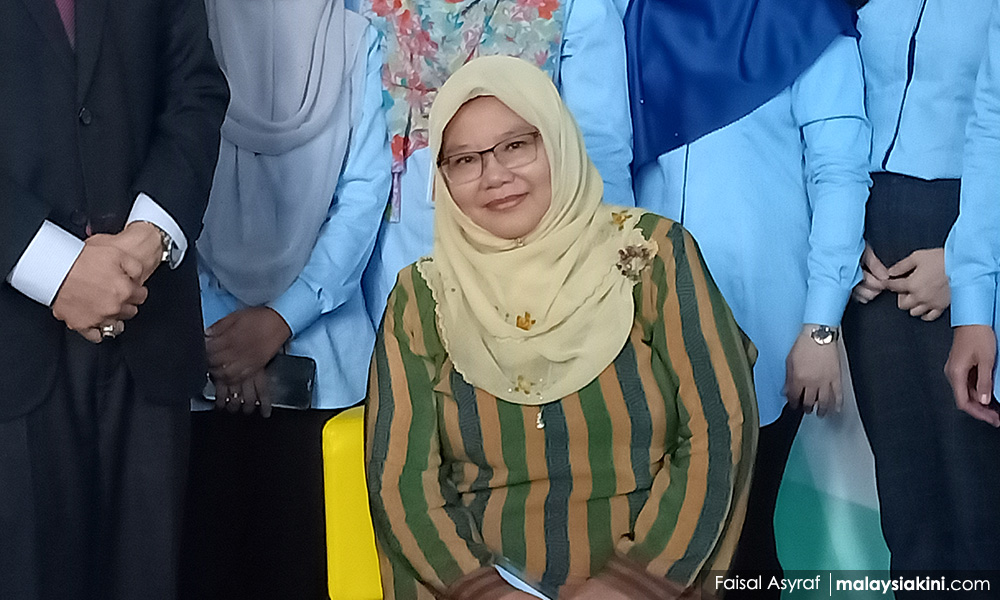CORONAVIRUS | Health Minister Dzulkefly Ahmad has admitted that a cabinet meeting yesterday discussed a suggestion to temporarily prohibit China tourists from visiting Malaysia.
However, he said the matter will be announced by Deputy Prime Minister Dr Wan Azizah Wan Ismail, who is also the chairperson of the National Disaster Management Agency (Nadma).
"Please wait for the announcement by the deputy prime minister and Nadma.
"We are always evaluating and assessing (the Covid-19 situation) based on information and evidence," Dzulkefly (above) said.
Asked if it's true that the suggestion involved putting a ban on China tourists from entering the country for a month, the minister declined to comment.
Malaysiakini has learnt that the cabinet had decided on the matter pending formal announcement by Nadma.
According to the World Health Organisation’s monitoring, 72 countries have implemented travel restrictions as of Feb 7 in a bid to contain the Covid-19 outbreak. Of these, only 23 had officially notified the WHO.
WHO chief Tedros Adhanom Ghebreyesus (below) had said measures that “unnecessarily interfere with international trade” are not needed to halt the virus, and other health experts have also questioned the need for large-scale restrictions on international travel.

Instead, WHO’s advisory document advocated screening travellers at border crossings, isolating suspected cases, and conducting awareness campaigns.
“WHO advises against the application of any restrictions of international traffic based on the information currently available on this event,” the advisory states.
Last week, an international group of global health law experts also argued that the international travel restrictions have no scientific basis and violates international law.
Specifically, the group of 16 scholars said Article 43 of the International Health Regulations 2005 - which is legally binding on the WHO and all countries - restricts parties to the regulations to implementing measures that are “supported by science, commensurate with the risks involved, and anchored in human rights.”
The IHR is intended to dissuade countries from taking needless measures that could harm people, and disincentivise countries from reporting new health risks to international public health authorities, they said, in a commentary published in the prominent medical journal The Lancet on Feb 13.
Among others, Article 42.2 of the IHR stipulates that additional health measures implemented in response to a public health emergency must be based on scientific principles and evidence, and advise of the WHO, and cannot be a mere “precaution”.
“Many of the travel restrictions being implemented during the Covid-19 outbreak are not supported by science or the WHO.
“Travel restrictions for these kinds of viruses have been challenged by public health researchers and WHO has advised against travel restrictions, arguing they cause more harm than good.
“Some countries argue that they would rather be safe than sorry. But evidence belies the claim that illegal travel restrictions make countries safer.
“In the short term, travel restrictions prevent supplies from getting to affected areas, slow down the international public health response, stigmatise entire populations, and disproportionately harm the most vulnerable among us.
“In the longer term, countries selecting which international laws to follow encourages other countries to do the same, which in turn undermines the broader rules-based world order. Effective global governance is not possible when countries cannot depend on each other to comply with international agreements,” they said.
To back their arguments, they cited three studies that investigated the efficacy of travel restrictions in limiting the spread of influenza and Ebola virus.
One study on the spread of influenza in the US found that travel restriction imposed following the Sept 11, 2011 terrorist attach had slowed the spread of the virus by two weeks.
Another study that analysed 23 papers on effects of travel restrictions on the spread of influenza concluded that the restrictions would delay the spread of the disease, but cannot prevent it.
“Travel restrictions would make an extremely limited contribution to any policy for rapid containment of influenza at source during the first emergence of a pandemic virus,” the authors concluded.
The study on Ebola, meanwhile, concluded that travel restrictions would only delay the spread of the disease to new countries by a few weeks.

Meanwhile, deputy vice-chancellor (Research & Innovation) Norsaadah Abdul Rahman (photo), who was also at the event, refuted the allegation that some Universiti Malaysia volunteers were forced to attend to students from China.
"We have no evidence that the students were forced. There's no element of force.
"In fact, they were briefed several times by medical officers. If they had evidence, they can show to us," she briefly said.
On Feb 16, a media reported that a representative of UM volunteers expressed dissatisfaction over being asked to attend to students from China who are being housed at the 10th Residential College.
The report stated that 550 students from China had returned to the campus and registered on Feb 5.
The volunteer is said to have been involved in conducting body temperature screenings of the students.
Asked if the volunteers were also screened, Norsaadah said they were checked and tested by officers from the Health Ministry.
"The Health Ministry had come and checked. There is no issue and those students tested negative and they were on home surveillance," she said.

